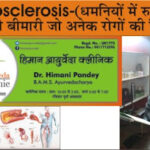Alcohol addiction is a pervasive issue affecting millions of people worldwide. Overcoming this addiction can be challenging, but with the right strategies and support, it’s entirely possible. In this article, we’ll explore ten effective tips to help individuals relieve alcohol addiction and regain control of their lives.
- Acknowledge the Problem: The first step towards overcoming alcohol addiction is acknowledging the problem. Denial often serves as a barrier to recovery. Accepting that alcohol has become a problem in your life is crucial for initiating positive change. This self-awareness opens the door to seeking help and exploring treatment options.
- Seek Professional Help: Alcohol addiction is a complex condition that often requires professional intervention. Consulting with a healthcare provider, therapist, or addiction specialist can provide valuable guidance and support. These professionals can assess your situation, recommend appropriate treatment options, and offer personalized strategies for recovery.
- Explore Therapy and Counseling: Therapy and counseling play integral roles in alcohol addiction recovery. Cognitive-behavioral therapy (CBT), motivational interviewing, and group therapy are among the most effective approaches. These therapies help individuals understand the root causes of their addiction, develop coping mechanisms, and learn healthier ways to manage stress and emotions.
- Develop a Support System: Building a strong support system is essential for overcoming alcohol addiction. Surround yourself with friends, family members, or support groups who understand your struggles and are committed to helping you succeed. Sharing your experiences with others who have faced similar challenges can provide invaluable encouragement and solidarity.
- Identify Triggers and Avoid Temptation: Identifying triggers that contribute to alcohol consumption is key to avoiding relapse. Common triggers include stress, social situations, and negative emotions. Once you recognize your triggers, develop strategies to avoid or cope with them effectively. This may involve making lifestyle changes, practicing relaxation techniques, or seeking alternative activities to distract yourself.
- Establish Healthy Habits: Replacing unhealthy behaviors with positive habits is essential for long-term recovery. Focus on adopting a healthy lifestyle that promotes physical, emotional, and mental well-being. This includes regular exercise, nutritious eating, adequate sleep, and engaging in fulfilling activities that bring you joy and fulfillment.
- Practice Mindfulness and Stress Management: Mindfulness techniques such as meditation, deep breathing, and mindfulness-based stress reduction (MBSR) can be powerful tools for managing cravings and reducing stress. By staying present in the moment and cultivating self-awareness, you can better understand your thoughts and emotions, making it easier to resist the urge to drink.
- Set Realistic Goals and Celebrate Progress: Recovery from alcohol addiction is a journey that requires patience, perseverance, and self-compassion. Set realistic goals for yourself and celebrate each milestone along the way. Whether it’s a day, a week, or a month of sobriety, acknowledge your progress and reward yourself for your achievements. This positive reinforcement reinforces your commitment to change and boosts your confidence in your ability to overcome challenges.
- Stay Engaged in Treatment and Recovery Activities: Consistency is key to maintaining sobriety and preventing relapse. Stay actively engaged in treatment and recovery activities, whether it’s attending therapy sessions, participating in support group meetings, or pursuing hobbies and interests that reinforce your sobriety. By staying connected to your recovery community and remaining committed to your goals, you strengthen your resilience and build a solid foundation for lasting change.
- Be Patient and Persistent: Recovering from alcohol addiction is not a linear process, and setbacks are a normal part of the journey. Be patient with yourself and recognize that change takes time. If you experience a relapse, don’t view it as a failure but as an opportunity to learn and grow. Stay persistent in your efforts, remain focused on your goals, and never lose sight of the progress you’ve made.
Takeaway : Overcoming alcohol addiction is a challenging but achievable goal with the right support, strategies, and mindset. By acknowledging the problem, seeking professional help, developing healthy habits, and staying committed to your recovery journey, you can reclaim control of your life and build a brighter, sober future. Remember, you are not alone, and recovery is possible.
















